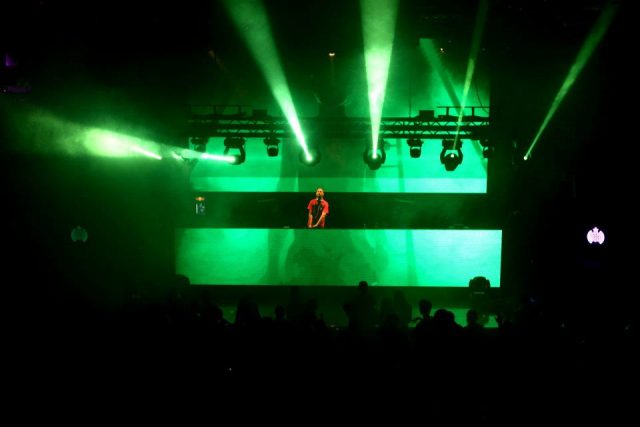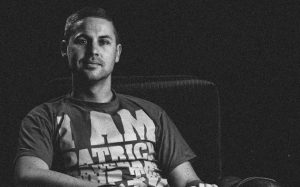
Patrick Hagenaar
Today we feature an in-depth interview with a stalwart of the dance music scene, Patrick Hagenaar! He’s had some career so far!
First up, can you tell our readers a bit about how long you’ve been in the music industry, and how you first got involved, and what you do these days?
In 1999, when I was 17 years old, I moved from the Netherlands to London to study business at London Guildhall University. The first thing I did was buy my equipment with the money I made with my summer job.
I managed to get my first residency at a local pub in East London after DJing for 6 months. I also managed to bag a weekend job at a record shop close to Spitalfields market (which is now a fancy hair salon) and worked for the student radio station. So from early on I was trying to do whatever I could to get my foot in the industry. As I was so young and had no real knowledge of the club scene, but was adamant that I was going to play in a big club, I decided to send my mixtape to 200 bars and clubs I found in the Time Out and used the office of the student radio station to call them every week to see if they had listened to my tape and whether they would book me.
These people must have thought I was crazy, but I was surprised how quite a few people were willing to actually listen! Eventually, I got my first break through when Gavin at Turnmills let me play to 800 Japanese students in the main room on a Thursday night! I ended up becoming a rep for Turnmills and flyering at my halls of residence for them. In 2000, my mixtape was featured in IDJ magazine in the bedroom DJ section, which I was ecstatic about, only to realise they messed up my mobile number, so got nothing out of it!

As part of my degree, I was suppose to do work experience for 12 months at my company of choice. The music industry was the only way to go for me, so after some advice from my best friend, I put my suit on, took a load of CVs and went to both major and independent labels to hand in my CV in person, hoping that people would take notice. I remember some labels not even opening the door to me, but I still pushed my CV under the door anyway. Eventually I managed to get a placement at BMG in the club promotions department after being picked out of 200 applicants. It was both the best and the worst year for me, I made some great friends, but my boss was an absolute bully and everyone there just turned a blind eye – for example I was taken to HR, because I was talking to the DJ’s too long…? It made me realise what a toxic environment a major label was at that time, and I decided I would never work for a major label again.
Whilst at BMG, I managed to get my first residency at a major club in London, which at that time was my ultimate goal. Every Wednesday night I’d play at Heaven, which was amazing. I think I was the only non-gay guy who played there, which often frustrated a lot of clients haha! Thursdays at work were often a struggle to stay awake after 2 hours of sleep, and I remember nodding off a couple of times and my head hitting the computer screen. As I have never drunk or taken drugs, I never had to worry about hangovers, so my actual job didn’t get affected by it.
At BMG I used to sneak off to a separate building everyday where one of the small imprints (Obsessive Records) were located, who did really cool stuff (like an Ian Pooley compilation), so was really intrigued. Through one of the guys there I got introduced to his girlfriend who was working in events at Ministry of Sound at the time. She gave me the opportunity to do a 1 day a week work experience through my final year at uni. This led to a full-time job eventually and I worked in the mobile/digital department for 5 years.
One of the funniest highlights was that in 2008, we managed to get Basshunter with his xmas record ‘Jingle Bells’ into the Top 15 in the UK charts purely on mobile downloads. This forced the label to actual get cd singles made – everyone hated us for it haha!
In the meantime I started playing more in the London scene at The Egg, Pacha, The Cross etc. Even though Ministry of Sound didn’t like their staff being DJs, I managed to get a trial for their sub brand Housexy, which was supposed to compete against Hed Kandi (which MoS eventually bought) and started touring for them, whilst getting international requests myself as well.
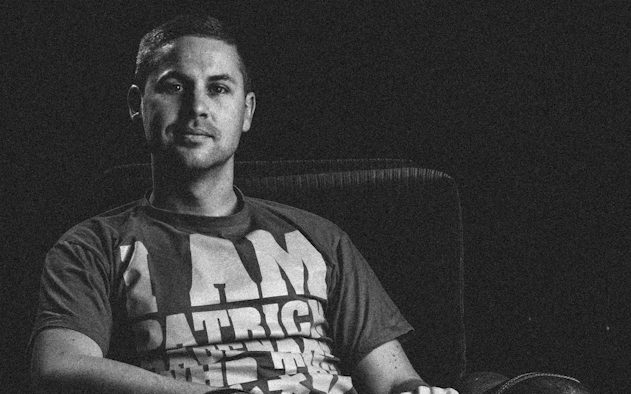
At 2009, I left MoS to work for a digital marketing agency, but was still DJ-ing a lot abroad as myself, but also as Hagenaar & Albrecht with my friend Alistair as we had quite some success with our releases together. Back in 2007, Alistair ran a night at Pacha London and after hassling him for months, he let me play at his night and that is how our friendship/ partnership started.
By 2010, it became increasingly difficult to combine a full-time job, whilst DJing internationally. I remember flying on friday night, straight after work, to Singapore, do a gig, land back at 6am at Heathrow on Monday morning and arrive at my desk at 8.30 am. I decided to sack my day job and give myself 12 months to build a sustainable career.
After 3 months I got an email from MoS tours, who had been keeping an eye on what I had been doing as a DJ and producer and asked if I was interested to do some gigs here and there. Eventually this led to a tours and club residency for 4 years. In the meantime my productions were getting released on major labels and started to do official remixes for Kylie Minogue, HAIM, Route 94, Rudimental, A-Trak etc.
By 2015, due to changes internally with management at Ministry of Sound tours, my residency was coming to an end. At that stage I was still doing quite some gigs and productions, remixes etc, but I felt that I wasn’t making enough of an impact anymore even though my productions were played by the biggest DJs out there and on national radio. I remember meeting the old booker from MoS, who I considered a good friend and he suggested it was time to maybe switch things up as my brand was perhaps a bit tired and done. That was initially a hard thing to swallow as when you use your own name as the brand, it’s personal. But then I asked myself ‘If I stop tomorrow, would anyone care?’ And the answer was ‘no’…
So I decided to use my knowledge and experience and start a new project from scratch and keep it under wraps. This was initially hard, as you try to open doors again. Even though you might have the contacts, they don’t know who you are. I often see people trying this and eventually give up and tell the world they are behind the project, which completely defeats the object when you try to build hype. The industry is always about the next big thing/hype and I thought if my productions are good enough, they will eventually cut through. Something that I wanted to do different this time was actually getting a team around me as I always used to do everything myself, which limited me to a certain degree; there was not enough time in the day to make music, find gigs, sort deals etc.
It took some time to get the project going and find the right manager, but within a year I started to make waves, getting played by tastemakers, getting national radio support, starting to remix artists like Dua Lipa. It was only at the end of 2017 when I had my first release on Axtone that I decided to actually show my face in press pictures etc as I felt that by that point that if people would find out who I was that I had already earnt some stripes to gain the respect. For me it was really important that people wouldn’t look at it like ‘Oh look, here is Patrick again trying to stay afloat’.
To this day Im still going strong with the project; managed to accumulate over 100m Spotify streams, have remixed the likes of Ed Sheeran, Clean Bandit, Kygo etc and played twice at Tomorrowland, so can’t complain! Although I’m still not shouting about the name…
Besides this I hooked up again with Alistair a couple of years ago to start a DJ promo company called Whoa! Promo. For years we have been discussing this and felt the time was right to launch it. With both our extensive knowledge on both sides of the industry and database we built up over the years, we felt there was a gap in the market to really offer value for money to clients and focus on real results by putting the DJ’s first. In the last 12 month, despite covid, we have been going from strength to strength, so 2021 is looking promising!
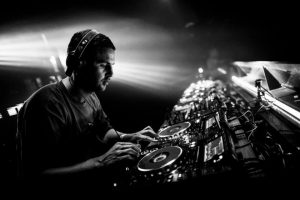
The music industry has changed an incredible amount in the last few decades – what are some important aspects of a modern music career that maybe weren’t a factor when you started?
Wow, I feel like an old man haha!
When I started DJing, I had to teach myself – there were no guidebooks, videos, YouTube etc. You were known for your skills as a DJ, and you didn’t have to be a producer. It took me years to even consider getting in production – it was around 2007 that this really started to get important. Even though I had dabbled with DAWs for a long time, I never considered it a real option. I learnt production by learning from pro’s – ie go in the studio with a basic idea and then learnt from what engineers did. I’m sure I used to annoy the hell out of them as I would constantly ask questions, trying to get my vision across to make sure it would get where it needed to be. Again there were no tutorials out there and it wasn’t super accessible.
When I started DJing, everyone played with vinyl. I didn’t as I couldn’t afford it, and played on CDs instead. In 1999/2000 people would put their nose up if they knew and most clubs obviously didn’t have them, so I had to ask promoters in a sly way what equipment there was and end up bringing my own very often with the knowledge that as long as I delivered, no one could complain. I ended up winning a major DJ competition in Holland whilst mixing on CDs.
Music is endlessly accessible now. You are not limited to what is in stock or the record shop is willing to sell to you. Unfortunately there is no filter anymore, so its tricky to find all the good stuff as there is not enough time in the day to listen to everything.
The attention span of your audience as a DJ is so different now. I used to just play what I thought would work well in a club, and the crowd would just be receptive and open to new music. This is more tricky to find now, unless you play at proper underground events.
Social media is king now, which is a good and a bad thing. Great to interact with fans and find out what is going and and build a following around the world. But you have to play the game and branding is everything now, music is sadly not enough.
As the barrier to entry is so much lower now, its an open playing field, which I think is a great thing. No matter where you are from, your music can be heard and if you have a laptop, you can make music! All information is readily available online and you can learn whatever you want! This is also reflected in the artists that are breaking through now – far more diverse and from all over the world.
Back in the day this was very different. In the same way you often hear people say ‘check the DJ top 100 from 1997 – that was a true reflection of the biggest DJs in the world’. What people forget is that DJ mag was mainly sold in UK, so it only really represented what the UK was into. So it wasn’t actually representing the world in any way, plus people abroad had to physically post their top 5 in!
Now the scene has become more mainstream and people can vote around the world, but again with everything being online, things can be manipulated easier as you often see with social numbers. But then again this has always happened in some way in the music industry – in the same way that labels used to buy their singles up in the record shop in order to chart higher. Its just happening in a different way now.
Ultimately the competition is so much more fierce now – you are essentially competing against artists from around the world for the attention span of the listener, which seems to get shorter and shorter, with so many distractions around online.
Anyway, it’s always good to have a challenge, right? And I still believe the old saying of ‘the cream always rises to the top’.
How do you balance your time as a producer, as a DJ, and then with other projects? Do you deliberately apportion X amount of hours per week/month to each, or is it something that changes depending on circumstances?
I don’t tend to play as much anymore as I used to, so my time is generally divided between Whoa! Promo and producing. In theory its split 50/50, but it fluctuates depending on how busy Whoa! Promo is and whether I have remix deadlines for instance. I tend to work a lot of evenings to keep both moving forward. There is never really enough time in the day. Its all about investing time to keep growing.
You’ve worked with some huge venues, labels and artists under your various aliases – how have you found dealing with those kinds of things? The music industry has a reputation for exploiting people with unfair contracts and so on – did you have professional help (lawyers/management etc), and what advice would you give people experiencing this for the first time?
Oh yeah, the industry has a bad rep and rightly so to be honest. Some people do try to pull a fast one left, right and centre and always throw it on ‘Do it for the exposure’ or just don’t pay you afterwards etc. I think its impossible to find anyone who hasn’t been screwed over at some point, but you live and learn. If I would have got a pound for every time I’ve been told ‘Well this is how the industry works!’ I would have been rich haha. A lot of stuff is deemed acceptable in this industry, that in any other industry would be totally unacceptable.
The dance music industry historically has always had a low barrier to entry and therefore attracted enough “Del Boys” or people from the underworld. Anyone can start a club night or run a label. All you need is capital, no qualifications needed.
I think, depending on the contract, get advice, even from friends. If its a serious long-term contract, get a lawyer – they know exactly what is fair and what is not. Labels, for example, often give you a standard contract with shitty terms, that you should never accept. If you don’t know what you are looking for, you will get fucked over. It is important for yourself to know what is worth a fight and what isn’t.
Also with one-off gigs – money speaks louder than a contract. I.e. get paid beforehand. If you have a gig abroad and you suppose to get paid afterwards, but you don’t. What are you really going to do about it?
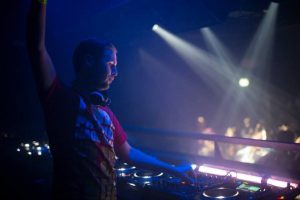
When you are travelling as a DJ, how do you go about deciding what to play? And what are you hoping for from the local DJs you work with?
First and foremost I do research. Where do I play? How big is the venue? What do they normally play music wise? Who has played there recently? What does the promoter expect?
All this info will give me a rough idea and on the back of that I make a shortlist of tracks to potentially play. In addition I have lists with genres of house music that I can fall back on.
Sometimes it goes completely different than you anticipate, so you got to be prepped. I always make sure I arrive at the venue an hour before I play to get an idea of the vibe is and what to potentially play. Its harder and harder to find great warm up DJs, something I’ve always enjoyed doing btw, as it often feels that DJs dont always appreciate their role as part of the overall night, and seems to be more about making their own set count. I guess I’m old school like that.
Ideal warm up DJs sets the mood for the night: doesn’t play hits or my tunes, and finishes in a way where I can pick up with my sound. I hate stopping and starting and intros. I’m a DJ and play a set, I’m not a ‘DJ artist’ giving a DJ concert or something lol
PS I remember at Ministry of Sound many times when a headline act just rocks up, couldn’t give a shit what had been played so far, plays his/her/their intro and plays the same set for an hour. Then the next DJ was somehow delayed and they would freak out as their set was exactly 1 hour and couldn’t extend it for 10 mins, so then one of the residents had to jump on the decks to fill the gap – what a fucking embarrassment! Also once a famous DJ didn’t want to play at 3am, because he was spending time with his kids the next day…? Why are you a DJ then haha! It’s kind of part of the job, playing late, no?
Did your sets differ when representing a brand like Ministry of Sound, vs being booked solely on your own name? If so, how and why?
Not much to be honest, if I would adapt for a more commercial set, it would still have to be music I would stand for. It had to fit within my sound as I still am a DJ in my own right.
I remember one promoter once commented on all the Housexy residents back in the day as the Spice Girls lol, he said: you all represent the brand musically, but give it your own touch. That balance is key I guess.
Do you think its a good idea for DJs to try and work behind the scenes as well as in the DJ booth and studio?
Oh yeah, if you are serious about being part of it, you need to get experience on both sides to get a good understanding and become an all rounder. For example, I have too often seen people make stupid business decisions, because they decide to be the artist and stick their head in the sand when it comes to contracts etc. It’s a business at the end of the day when you like to or not. Otherwise just do it as a hobby and then you don’t have to worry too much!
How has the 2020 lockdowns experience impacted your work, and the music you make and release? What do you expect in 2021 and beyond?
Obviously no gigs. Spotify streams definitely have gone down and as with no clubs open, there hasn’t been as many remix requests, even though my remixes are played a lot on specialist radio and podcasts, but I think a lot of labels have been putting their budget elsewhere instead, which is totally understandable. Production wise, I have just been carrying on as normal, although not been able to do many writing sessions with songwriters this year. Done a couple through zoom, but just doesn’t work in the same way. With Whoa! Promo we had our busiest year as we very much focused on podcasts, live streams and specialist radio, which is where we have been able to make a real impact.
2021 will take some time to get going I reckon, I personally have no expectations gig wise.
Music wise, I’m just focused on making bigger and better songs with the hope one will break through, which is always a bit of a lottery!
For Whoa! Promo we aim to make it our biggest year yet and keep growing our database in new areas to offer even better value for our clients. Its all about being proactive.
Whats the one piece of advice you would give a new DJ starting out today?
Just have fun with it and do it because you love music. There is nothing more fun than sharing your passion for music with others and make them dance!
The moment its not about the music anymore, that is where it starts to go wrong.
Ps: be serious about what you do, but DON’T take yourself serious, you are just someone playing records at the end of the day; nothing more nothing less.
Check out Patrick at his Soundcloud, and DJs/labels – make sure to check out Whoa! Promo!
Go get the best new tunes at the Heavy Hits pool, and follow me over on Instagram!


